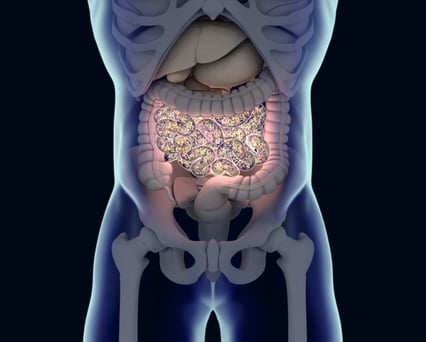eStoreRx™
Online Supplement Dispensary
eStoreRx™ is an easy direct-to-patient ordering & fulfilment program for lifelong wellness.
For over 40 years, Biotics Research Corporation has revolutionized the nutritional supplement industry by utilizing “The Best of Science and Nature”. Combining nature’s principles with scientific ingenuity, our products magnify the nutritional
eStoreRx™ is an easy direct-to-patient ordering & fulfilment program for lifelong wellness.
Biotics Research is proud to expand our commitment to education with the Wellness Unfiltered Pro Podcast. Each episode delves into key health topics and the clinical applications of our premier products. Through candid, insightful conversations, our team offers practical guidance to keep you informed and empowered as a healthcare professional.
February 19 2026
The journal Sleep Medicine Reviews recently published the results of a systematic review and meta-analysis examining melatonin supplementation among c...
 Polyphenols may generate numerous health benefits by modulating the gut microbiota (GM). Phytochemicals that can influence GM have recently been studied as adjuvants to support healthy weight and inflammatory response. These phytochemicals include polyphenols and their derivatives, carotenoids, and thiosulfates, which were “further sub-classified into four main groups: flavonoids (including eight subgroups), phenolic acids (such as curcumin), stilbenoids (such as resveratrol), and lignans.”
Polyphenols may generate numerous health benefits by modulating the gut microbiota (GM). Phytochemicals that can influence GM have recently been studied as adjuvants to support healthy weight and inflammatory response. These phytochemicals include polyphenols and their derivatives, carotenoids, and thiosulfates, which were “further sub-classified into four main groups: flavonoids (including eight subgroups), phenolic acids (such as curcumin), stilbenoids (such as resveratrol), and lignans.”
“An imbalance of GM, or dysbiosis, can be the cause of, or at least lead to the progression of several pathologies such as infectious diseases, gastrointestinal cancers, cardiovascular disease, inflammatory bowel disease, and even obesity and diabetes.” Of the phytochemicals ingested, 90-95% “reach the colon in high concentrations (up to mM range), where they are degraded by the microbial enzymes prior to absorption.”
Joining the ranks of prebiotics and probiotics, polyphenols are now attracting interest in the media and the research community as potential therapeutic agents in supporting healthy weight management. Proposed mechanisms of actions include “inhibition of the differentiation of adipocytes[1], increased fatty acid oxidation,[2] decreased fatty acid synthesis, increased thermogenesis, the facilitation of energy metabolism and weight management,[3] and the inhibition of digestive enzymes.[4]
As promising as this is, more research is required to determine role of micronutrients and phytochemicals as therapeutic agents in modulating the GM, and, therefore, influencing weight management and the inflammatory response.
Ref.: Carrera-Quintanar L, López Roa RI, Quintero-Fabián S, Sánchez-Sánchez MA, Vizmanos B, Ortuño-Sahagún D. Phytochemicals That Influence Gut Microbiota as Prophylactics and for the Treatment of Obesity and Inflammatory Diseases. Hindawi. Mediators of Inflammation. 2018 Article ID 9734845, 18 pages. https://doi.org/10.1155/2018/9734845.
[1] Min SY, H. Yang, Seo SG, Shin SH, Chung M-Y, Kim J, Lee SJ, Lee HJ, Lee KW. Cocoa polyphenols suppress adipogenesis in vitro and obesity in vivo by targeting insulin receptor. International Journal of Obesity. 2013 37(4):584–592.
[2] Shimoda H, Tanaka J, Kikuchi M, et al., Effect of polyphenol-rich extract from walnut on diet-induced hypertriglyceridemia in mice via enhancement of fatty acid oxidation in the liver. J Agri and Food Chemistry. 2009 57(5):1786–1792.
[3] Stohs SJ, Badmaev V. A review of natural stimulant and non-stimulant thermogenic agents. Phytotherapy
Research. 2016 30(5):732–740.
[4] Gu Y, W. J. Hurst WJ, D. A. Stuart DA, J. D. Lambert JD. Inhibition of key digestive enzymes by cocoa extracts and procyanidins. J Agri and Food Chemistry. 2011 59(10):5305–5311.
Submit this form and you'll receive our latest news and updates.
Nature Microbiology recently published the results of a multi-cohort multi-omic analysis that examined the link between ...
Learn moreBMC Microbiology recently published a meta-analysis of metagenomic sequencing data from obese and non-obese participants...
Learn moreResults of a prospective and longitudinal study conducted among schoolchildren were recently published in Allergology In...
Learn more
*These statements have not been evaluated by the Food and Drug Administration. This product has not intended to diagnose, treat, cure, or prevent any disease.
© 2025 Biotics Research Corporation - All Rights Reserved
Submit your comment